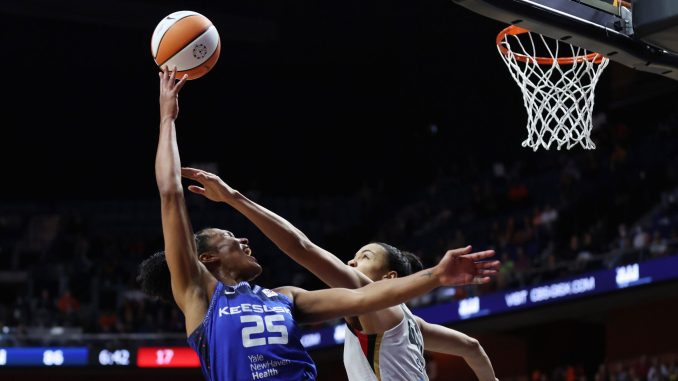
A writer for The Atlantic magazine recently used a story about a teenage girl who wanted to play high school football to argue against segregating sports by sex.
Maggie Mertens acknowledges sex differences between men and women in sports in her essay. But she claims that “researchers today still don’t know how much of this to attribute to biological difference versus the lack of support provided to women athletes to reach their highest potential.”
Mertens thinks a case of one female athlete and several allusions to “science” that questions biological sex differences are enough to destroy the entire concept of the sex binary.
The dominant narrative around transgenderism has moved from gender dysphoria and clinical discussions of mental health disorders to cultural conversations about gender identity, personal pronouns, and affirmation. The final step in colonizing public policy and social norms is eradicating the reality of biological differences between men and women.
Mertens took to Twitter to justify her views by linking to an article that claims the existence of intersex conditions proves the idea of two sexes is “overly simplistic.”
The truth is that rare genetic conditions reaffirm the sex binary, rather than challenge it. There is no third sex or third gamete. And the “secondary” sex differences are well-established.
Mertens denies this reality when she claims scientists have challenged the belief that boys are on average bigger, stronger, and faster than girls. But as the saying goes, “That’s why they play the game.”
Florence Griffith-Joyner is generally acknowledged as the fastest woman in history. Her time of 10.49 seconds in the 100-meter dash is still a world record for female sprinters, but is not even among the top 6,000 times for men.
Professional basketball is no different. The WNBA shared a video in 2017 of every dunk in the 20-year history of the league to that point.
The video was 71 seconds long.
The USA women’s soccer team—winners of the 2019 FIFA Women’s World Cup—dominates the pitch when squaring off against female players from across the globe. That didn’t matter to the teenage boys who defeated professional women almost twice their age in a 2017 match.
Mertens would probably repeat this line from her essay to explain those outcomes:
[T]hough sex differences in sports show advantages for men, researchers today still don’t know how much of this to attribute to biological differences, versus the lack of support provided to women athletes to reach their highest potential.
In the world of radical gender ideology, testosterone is apparently a social construct.
The inner workings of the human mind are complex. That’s why the gender debate is largely focused on how people “identify” based on whether they “feel” like a man or woman.
The outward functioning of the human body is much simpler and easier to detect. Either a man can bench press 250 pounds or he can’t. Either a woman has a 40-inch vertical jump or she doesn’t.
Rare as these performance measures are, all the people who possess such otherworldly athletic ability are men. Acknowledging this fact is not sexist. It respects female athletes for their immense talent on their own merits, not in comparison to their male peers.
The Atlantic, like many other institutions dominated by the Left, thinks it can create the world of its choosing ex nihilo. This impulse reflects a god complex that is common with people who cannot accept a world in which differences in outcomes exist across groups.
It’s much easier for them to reshape cultural norms in their own image than appreciate the reality that men and women—designed by their Creator—are equal in worth and dignity, but different in form and function.
Ultimately, the girl in the story did not join the team. Although her school approved her request to play, she quit because she was upset by the tests she had to undergo before being declared eligible to compete.
I hope she continues to enjoy the game of football, but it’s hard to miss the irony of an article arguing that teenage girls are strong enough to play tackle football with boys ending with the protagonist quitting because her feelings were hurt by adults.
Human nature remains undefeated.
Have an opinion about this article? To sound off, please email letters@DailySignal.com and we’ll consider publishing your edited remarks in our regular “We Hear You” feature. Remember to include the url or headline of the article plus your name and town and/or state.

